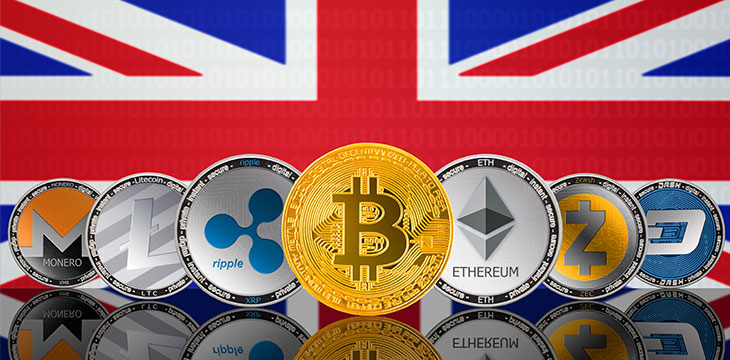Singapore has positioned itself at the forefront of the digital finance revolution by emerging as a major hub for cryptocurrency innovation and investment. Singapore’s progressive regulatory framework and strong infrastructure have made it a desirable location for people and companies wishing to invest in cryptocurrency Singapore. The Monetary Authority of Singapore (MAS) of the city-state has taken the initiative to create a favorable environment for blockchain technology and digital assets.
Investors who are eager to investigate the possibilities of cryptocurrencies are drawn to Singapore because of its progressive laws and dedication to technology development. As more people choose to invest in cryptocurrencies, Singapore stands out as a vibrant and safe sector that provides chances for expansion and diversification in the ever-changing digital asset market.
Singaporean legislation associated with cryptocurrencies
When it comes to implementing a fair legal and regulatory framework for cryptocurrencies and the businesses that deal with them, Singapore has become a role model for other countries. The MAS, the nation’s financial regulator, is entrusted with keeping an eye on the dangers connected to transactions involving cryptocurrencies while allowing technology innovation to flourish.
Overview of the cryptocurrency regulations
To implement this goal, the MAS presented the Payment Services Act (PSA) in January 2020 as a comprehensive set of regulations governing both conventional and cryptocurrency exchanges. This act gave Bitcoin firm owners precise license and money laundering compliance requirements, as well as unifying all payment-related services under a single legislative framework.
Digital payment tokens (DPTs) are what are known as digital currencies under the PSA; the MAS has designated Bitcoin (BTC) and Ether as cryptocurrencies. As a result, cryptocurrencies are now recognized as legal assets in Singapore and can be handled similarly to other asset types.
Under the act, any individual or organization providing DPT-related services must additionally apply for and receive a standard or significant payment institution license from a corporation with its registered office located in Singapore. In May 2020, the MAS also expanded the scope of the Securities and Futures Act (SFA) to include public offers or issues of DPTs, treating authorized tokens as capital market goods for all purposes.
Notification PSN02, also known as the Crypto Travel Rule, was released by the MAS to address the risks associated with money laundering and terror financing. It provided DPT service providers with comprehensive recommendations for both AML and CFT for combating the financing of terrorism. DPT service providers must now carry out customer due diligence, report questionable client transactions, and have a thorough transaction monitoring process in place to look for indications of misuse as a result of this notification and its later revisions.
Furthermore, to issue digital tokens, cryptocurrency exchanges, and other main platforms must apply for and receive a capital market services (CMS) license, provided they fulfill the financial standards set forth by the Monetary Authority of Singapore (MAS). This has made it possible to distinguish between companies developing blockchain-based innovations for the cryptocurrency ecosystem and those engaged in operations related to creating markets for cryptocurrencies.
Updates for Singapore’s DPT license to 2024
The MAS released its last round of replies about Singapore’s DPT service providers on November 23, 2023. The new ideas set minimal rules for technology and cyber risk, intending to minimize potential harm to consumers. By 2028, revenue is predicted to have grown at a compound annual growth rate (CAGR) of 8.79%, or US$479.5 million.
The latest actions taken by the MAS consist of
1. Recognizing, reducing, and appropriately disclosing information about real and prospective conflicts of
interest.
2. Releasing the guidelines, standards, and practices that control a DPT’s listing.
3. Implementing efficient policies and processes to deal with complaints from customers and settle disagreements.
DPT service providers ought to reduce speculation directed at their customer base by:
1. Figuring out if a client is aware of the risks of using DPT services.
2. Providing no incentives for cryptocurrency trading.
3. Not offering margin, leverage, or funding transactions.
4. Not taking credit card payments with local issuers.
5. Restricting the role of cryptocurrency value in estimating a client’s net worth.
The MAS cryptocurrency rules and regulations, which will go into effect gradually starting in mid-2024, will be used to apply the regulatory requirements for DPT services.
How can You buy or invest in cryptocurrency Singapore?
With the help of the crypto trading platform Singapore, buying cryptocurrencies is a popular activity in Singapore. Before starting this journey, a few things must be ready: a secure internet connection, a mobile phone for two-factor authentication, personal identification documents for verification, and a designated payment account or method (which can include credit cards and fund transfers).
Financial situation
One should be aware that when you are trading Bitcoin using an exchange, the crypto trading platform Singapore is usually in possession of the cryptocurrency. To ensure the security of your money on the crypto wallet Singapore, three important things should be remembered.
Separating accounts
Furthermore, accounts should be split. Cryptocurrency holdings shall be kept on segregated accounts to keep client money separate from the service provider’s holdings. With ring-fencing, customers’ cryptocurrency holdings are protected from the service provider’s ability to fail financially.
Secure (cold) Storage
Thirdly, safe cold storage must be used. To protect cryptocurrency from possible theft or hacking, the exchange should implement risk management measures and make security tighter by using either a hot or 100% cold storage option. Unlike hot storage which is connected to the internet for convenience, cold storage is not connected to the internet and is therefore considered to be more secure and less vulnerable to hacking.
To reduce the possibility of bankruptcy, it is crucial to evaluate the custodian’s financial situation. Users feel more confident when their custodian is well-respected and financially secure.
Although custodial wallets are provided by exchanges, non-custodial wallets may be preferred by certain people. By offering hot and cold storage choices, these wallets remove the need for third-party custodians and lower the risk associated with them.
However, using non-custodial wallets means that the user has to put in more work and that there is no way to retrieve lost private keys. In Singapore, where Bitcoin storage is a thriving industry, striking a balance between security and convenience is crucial.
Invest in Singapore’s cryptocurrency market: data and information
An overview of Singapore’s attempts to promote cryptocurrency adoption in the Asia-Pacific region and its involvement in the area is given in this table.
| Aspect | Details |
| Fintech Investments in Singapore (2022) | USD 4.1 billion |
| Cryptocurrency Companies Funding (Q3 2022) | USD 196 million across 24 deals |
| Leading Cryptocurrency in Singapore | Bitcoin |
| Singapore’s Objective | Strengthening its position as an international financial hub through digital innovation and fintech development Factors Favoring Crypto Adoption in Singapore |
| Factors Favoring Crypto Adoption in Singapore | Highly connected population, excellent telecommunications network, skilled workforce, and a favorable fiscal system (no capital gains tax) |
| Cryptocurrency Ownership Rate in Singapore | Estimated at 19%, higher than the global average of 15% |
Recent Case Study of Cryptocurrency In Singapore
High Court Rules That Cryptocurrency Is Property in Bybit Case
The High Court of Singapore has formally acknowledged cryptocurrencies as a property that can be held in trust, a significant decision. The lawsuit concerned Ho Kai Xin, a contractor, and Bybit, an exchange situated in the Seychelles. Bybit said that Ho had exploited her position to move more than 4.2 million USDT (a stablecoin created by Tether) to addresses under her control, in breach of her employment contract. She also added a certain amount of fiat money to her personal bank account.
The court recognized cryptocurrency assets as a type of property with an incorporeal right of ownership in the ruling, which was released in 2023. The judge cited a response to a public consultation by the Monetary Authority of Singapore, which emphasized that digital assets may be identified and separated, supporting the claim that they can be trusted.
The court pointed out that the decision was a little bit circular, but he also made comparisons to how other social constructions, like money, are treated by the law. Likening it to the skepticism around the worth of crypto assets, he said that the recognition of the exchange value of shells, beads, or printed paper notes is what gives them money status.
Bybit requested confirmation that Ho was holding fiat money and USDT in trust for the trade. Ho defended herself by saying that the locations were owned and controlled by her cousin Jason Teo, who she accused of stealing. Nonetheless, the judge acknowledged that Jason either did not exist or did not fulfill the role that Ho said he performed on the balance of probability. As a result, the court mandated that Ho return the stolen property to Bybit.
This important ruling creates a precedent for the law in Singapore and clarifies how cryptocurrencies should be seen as valuable assets that may be subject to trust agreements in contracts.
Cryptocurrency news update in Singapore
Crypto Exchanges Are Forced by Singapore to Transfer Customer Funds to a Trust
More stringent rules on the cryptocurrency industry are being implemented by the Monetary Authority of Singapore (MAS) to protect investors and avoid another FTX collapse, which occurred in November. Cryptocurrency exchanges must move digital assets to a specific statutory trust by the end of 2024, and traders are no longer permitted to lend or stake their holdings. By reducing the possibility of theft or commingling of client cash, MAS seeks to facilitate asset recovery in the event of insolvency.
The government of Singapore is enacting regulations in response to public comments from October 2022, mandating that 90% of customer assets be kept in a cold storage in a crypto wallet Singapore. With over 40% of local investors using cryptocurrencies, acceptance of cryptocurrencies is booming in Singapore despite regulatory measures, securing the nation’s status as a major hub for technology.
Conclusion
In addition to being allowed, to invest in cryptocurrency Singapore is being encouraged by a strong regulatory environment. The city-state has welcomed the promise of digital assets and offers investors a haven. For individuals wishing to invest in cryptocurrencies, Singapore is a good option because of its progressive policies and transparent regulations. Singapore’s digital investment market appears to have a bright future.






